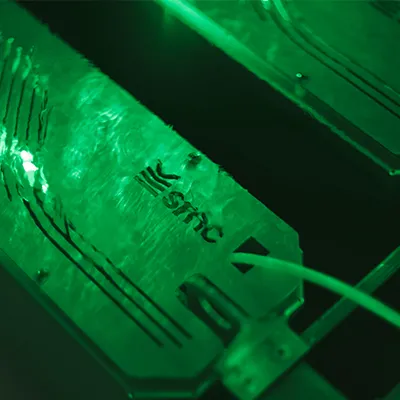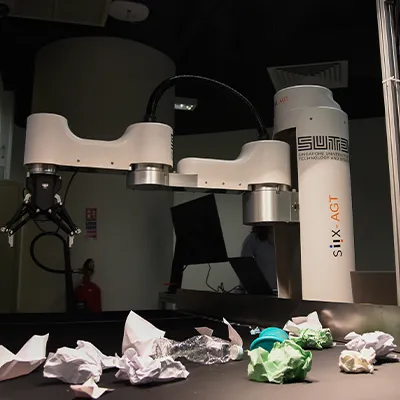There is no playbook to copy and adapt from when it comes to regulating the nascent digital domain, which is why Singapore is working with tech companies to develop regulations that can be implemented and enforced.
In essence, Singapore will collaborate with companies in the field to ensure rules that are put in place are effective, said Minister for Communications and Information Josephine Teo at the World Economic Forum onWednesday (May 25).
At a discussion titled Advancing Digital Cooperation, she launched an artificial intelligence (AI) testing toolkit and invited firms to use it to demonstrate to their customers and other stakeholders that their AI systems are accountable, transparent, safe and do not discriminate based on attributes such as race or gender. The pilot programme is called AI Verify - AI Governance Testing Framework and Toolkit.
Examples of AI being used today include banks that employ the technology for credit scoring or fraud detection, and human resource firms for resume processing.
The toolkit, the use of which is voluntary, builds on a framework on ethical and responsible AI use that Singapore announced in Davos in 2019 and updated a year later at the same forum with real-world use cases and principles, including that AI models must produce consistent results with little margin of error.
On the pilot toolkit, which consists of a battery of tests and a testing framework, Mrs Teo, who is also Minister-in-charge of Smart Nation and Cybersecurity, said: "It is intended as a practical resource that businesses can self-assess voluntarily.
"It gives them a way to assure their stakeholders (that) what their AI system actually does promotestransparency, and hopefully will help to also build a level of trust in the AI that they use."
The Government's approach to regulating the tech domain includes maintaining dialogue with companies, both to take on feedback in areas such as standards and to understand how the technology works.
"We like to keep this dialogue going, simply because the purpose of regulation has to be to achieve some level of effectiveness," she said. "To (put in rules) without understanding how the technology actually works, I think we are putting ourselves in a very difficult position."
Businesses which are able to use data for innovative purposes should be promoted in a helpful way, added Mrs Teo.
Microsoft president and vice-chairman Brad Smith, who was also on the panel, said Singapore's approach defers from some jurisdictions which are tackling the issue from the traditional law and regulation approach.
Instead, the Republic has put out an early-stage product and a feedback loop so that different stakeholders can get experience tackling issues such as possible standards for AI systems.
"As we get more experience, I think we're all going to find that we're (more) effective, consensus is easier to achieve, and it is easier to move ideas around the world and across borders," he said.
In a wrap-up interview with the Singapore media, Mrs Teo said the Republic takes an incremental approach to legislating the tech sector, making laws in areas where the Government has deeper understanding, and updating them as technology and needs evolve, rather than to put in place laws that are not viable.
"You have to think of it as building blocks: when the blocks become available, you put them into play and then continue to build on that," she said.
This is why the city-state said in March that it is going to update its Cybersecurity Act just three years after it came into effect, while the Personal Data Protection Act was likewise enhanced in 2020 with heavier penalties for data breaches, said Mrs Teo.
"(For) regulations in the digital domain, you are unlikely to be able to introduce it in one big bang, and it's good for 10, 15, 20 years - it's not going to work like that," she said.
"It's much more likely that you spot an opportunity to put in place some guardrails that will be more reassuring for citizens engaging in the cyber domain...and then continue to identify areas for improvement and update the regulations accordingly."
Source: The Straits Times © SPH Media Limited. Permission required for reproduction.







